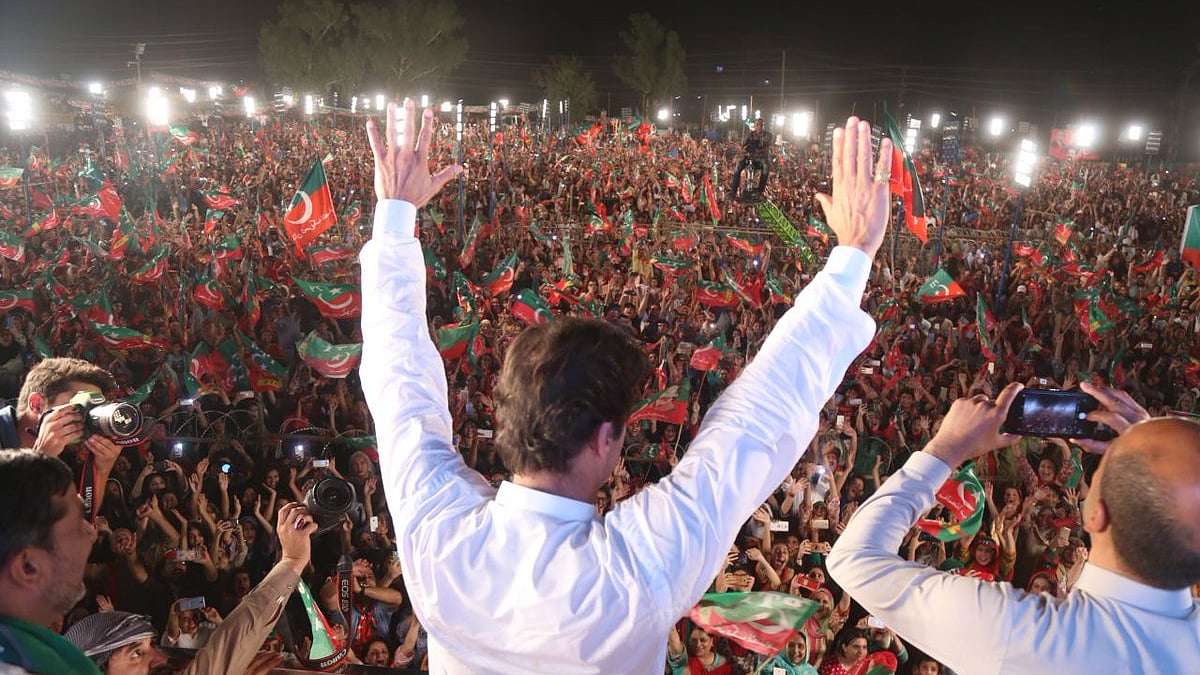World
A hung assembly in Pakistan would be the “worst outcome” for India, say experts
As opinion polls predict a hung assembly in Pakistan, security agencies will look to back a coalition government of Imran Khan’s PTI and hardline Islamist groups, which include Hafiz Saeed’s outfit

As opinion polls on the eve of elections to Pakistan’s National Assembly hint towards the possibility of a hung assembly, ex-Indian officials with experience in dealing with Islamabad are wringing their hands in anxiety.
“From all indicators, it’s going to be a hung assembly in Pakistan with either PTI or PML(N) as the two biggest parties,” said Lieutenant General (retired) Syed Ata Hasnain, who has served as the head of Srinagar-based XV Corps of the Indian Army.
Hasnain went on to note that in such a scenario, the Pakistani Army may back a coalition government of Imran Khan-led Pakistan Tehreek-e-Insaaf (PTI) and hardline Islamist groups, known as the fourth front.
“This is the worst situation for India and the best for the Pakistan Army. It is obvious that Pakistan has decided not to consider the FATF strictures too seriously and will continue to play the dangerous game supporting the radical elements to maintain its relationship with the Taliban and its options in J&K,” said the decorated Indian Army veteran, who won enormous goodwill among the Kashmiris for his soft outreach programmes when he was stationed in Srinagar.
Among the parties of the fourth front is hardline Islamist outfit Milli Muslim League (MML), floated last year by 26/11 mastermind and globally sanctioned terrorist Hafiz Saeed. The MML will contest Wednesday’s vote under the banner of Allah-o-Akbar Tehreek and focus on voters of Ahle Hadis sect, which constitutes five to 10 percent of Pakistan’s population.
“Although in the past these parties have hardly had a political presence, they may win as many as 50-60 seats this time,” noted Hasnain.
Published: 24 Jul 2018, 6:30 PM IST
<i>“What is in our interest is some stability in Pakistan. That is the main point to look out for this election,” said TCA Raghavan, India’s High Commissioner to Pakistan between 2013 and 2015</i>
As per opinion polls, Imran Khan’s PTI is slightly ahead in a neck-and-neck race with Nawaz Sharif’s PML (N), with 30% of respondents favouring the cricketer-turned-politician over 27% who want PML(N) in power. What makes the contest tighter is that Punjab, the home state of Sharif and which sends 141 members to National Assembly, favours the PML(N) over Imran.
Echoing Hasnain’s sentiment, India’s former foreign secretary Kanwal Sibal says that Khan is “more likely to do the bidding of the armed forces” than Sharif.
“It is quite clear that Pakistani security agencies are now favouring Imran Khan. He is their candidate and they have been using him to weaken Nawaz Sharif, since there is a not-so-favourable history of relationship between Sharif and Khan,” said Sibal.
India’s former top diplomat, however, said that the military would continue to wield considerable influence in Pakistan’s polity even if the PML(N) returned to power.
“Unless the Pakistani Army, for whatever reasons, decide that they must give up confrontation with India, even at the risk of their own position within the Pakistani polity, we won’t have a meaningful debate whether one leader or the other would be effective,” said Sibal.
For TCA Raghavan, India’s High Commissioner to Pakistan between 2013 and 2015, “stability” is what India should hope for to get bilateral relations with Pakistan on the right track.
“What is in our interest is some stability in Pakistan. That is the main point to look out for this election,” he said.
Published: 24 Jul 2018, 6:30 PM IST
Follow us on: Facebook, Twitter, Google News, Instagram
Join our official telegram channel (@nationalherald) and stay updated with the latest headlines
Published: 24 Jul 2018, 6:30 PM IST